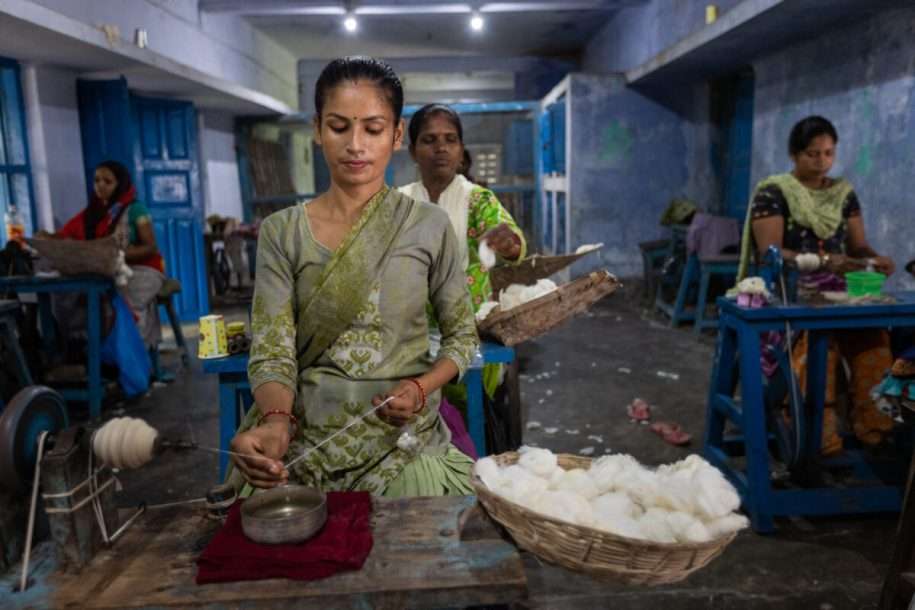Small-scale entrepreneurship is an important pillar for promoting inclusive development in India, fuelling communities with innovation and job creation. However, entrepreneurs, particularly women, face several constraints in starting and growing their businesses. One such key constraint well-documented in literature is the lack of financial capital – when these entrepreneurs seek financial support, the journey can be riddled with unexpected challenges and bureaucratic hurdles (Maheswari, 2017). As part of an ongoing research study at LEAD, we recently audited the credit availing process for entrepreneurs. Preliminary findings from the exploratory study suggest an interesting, albeit complex, landscape with various factors at play. In this field note, Research Associate Shivani Vaidyanathan, shares a glimpse into what we have learned so far, narrated through the voices of the entrepreneurs.
The Dream of Expansion
Rekha* visited the nearest public sector bank in hopes of developing her provision shop but her meeting with the bank manager was far from straight-forward. “I went to the bank with all my documents but in vain. They grilled me about my business plans, profit and revenue numbers and said I won’t receive the money directly”, Rekha said.
She was asked to submit quotations for raw materials and instructed that the costs will be paid directly to the vendors. She seemed hopeful after her first bank visit but when she ventured to prepare the quotation documents, she understood that the process was not easy especially for a small-scale business that predominantly deals with cash and informal processes. She had met a dead-end with limited assistance from the bank to achieve her business expansion goal.
The Language Barrier Battle
Ritika’s* experience was different but no less challenging.
“I walked into the bank, ready with all my documents and confident to apply for a loan for my power loom business. The manager only spoke Hindi, and I only spoke Tamil. He denied my loan with just one sentence “No loan, leave now.”
The study’s field executive, Kothandam, mentioned he could hear the confusion and fear in her voice when she shared her experience. He shared that an entrepreneur’s dream of expanding her business was lost in translation.
The Banking Dilemma
Fathima*, who runs a tailoring shop, was told that consistent transactions through her bank account were necessary to qualify for a loan. The irony was that all her primary transactions were small-scale through cash – a phenomenon common in rural settings (Benami & Carter, 2021). She left the bank feeling more puzzled than prepared, realising that her path to expanding her business would be more intricate than she had imagined.
Her loan request was rejected and she was asked to increase her transactions through her bank account for the next six months and then revisit the bank with a fresh loan request. The bank offered no guidance on how to go about this while keeping her business afloat.
The Government Scheme Quest
When two other entrepreneurs visited the bank to apply for a loan, they were redirected to apply through a government scheme. They were told that it will be beneficial for them due to subsidised interest rates but no other information was received from the bank. “They told me to find and visit the government office but no information on the necessary documents, loan product, eligibility were given to me.” A few Government scheme names were briefly mentioned but no other guidance was provided.
The Online Divide
A notable finding from the fieldwork was that the entrepreneurs did not receive physical loan application forms. Instead, many were informed that the entire loan application process would be conducted online. While the shift to digital and single-window systems aims to reduce bureaucracy and increase transparency in the application process, it is crucial to ensure that these platforms are inclusive and offer assisted application modes for those who may need additional support. The first step in the process was to fill the online application and then re-visit the bank. Many entrepreneurs, especially in rural areas, lack digital capabilities and access to reliable internet which makes it difficult for them to navigate the digital process. This digital divide poses a significant challenge, excluding many capable entrepreneurs from accessing the financial support they need. Our findings underscores the urgent need for banks to provide alternative application methods and support to bridge this gap.
Preliminary findings from this work suggest that despite several schemes and policies, an entrepreneur’s journey to securing a loan is complex in practice. Having the necessary documents and a stable CIBIL score are important prerequisites, but these are not always enough to guarantee a loan. In some cases, quotations were required to move the loan application forward. In other instances, low transactions through bank accounts and language barriers were reasons for rejection. Redirection to government schemes and digital processes also left the entrepreneurs confused about how to proceed with their application.
These insights will feed into a systematic audit study that will be rolled out shortly. The main focus of the audit study is to gather insights into the systemic and practical challenges that entrepreneurs’ face and inform the design and delivery of supporting interventions.
The author would like to thank Kothandam D, Field Manager at LEAD, for his dedicated support in conducting the field work and sharing his insights.
*Names of the entrepreneurs have been changed to ensure anonymity.
Endnotes
[1] Benami E., & Carter MR. (2021). Can digital technologies reshape rural microfinance? Implications for savings, credit, & insurance. Appl Econ Perspect Policy. https://doi.org/10.1002/aepp.13151
[2] Maheswari, N. U. (2017). Small Scale Entrepreneurship In India. sijshmt.com.
About the Author
Shivani Vaidyanathan is a Research Associate with the Small, Growing Businesses and Employment vertical at LEAD. In the past, she worked as a Research Intern at J-PAL South Asia and KPMG New Zealand. Shivani has a Bachelor’s degree from Symbiosis International University where she studied Economics as her major and International Relations and Computer Science as minors.





